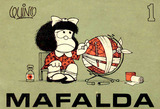
A sample culminating writing/art/all-around creative project for world language classrooms!
- Subject:
- Education
- Language Education (ESL)
- Languages
- Material Type:
- Assessment
- Author:
- Mariah Villaroman
- Date Added:
- 04/25/2020

A sample culminating writing/art/all-around creative project for world language classrooms!

This course examines major social and political trends, events, debates and personalities which help place aspects of contemporary French culture in their historical perspective through fiction, films, essays, newspaper articles, and television. Topics include the heritage of the French Revolution, the growth and consequences of colonialism, the role of intellectuals in public debates, the impact of the Occupation, the modernization of the economy and of social structures. The sources and meanings of national symbols, monuments, myths and manifestoes are also studied. Recommended for students planning to study abroad. Taught in French.

This website gives you the opportunity see the world through different people all over the world on a variety of topics. Watch videos, see lesson plans about global issues and looking at it from a lense of focus on 100 people.
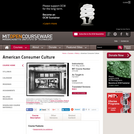
This class examines how and why twentieth-century Americans came to define the ŰĎgood lifeŰ through consumption, leisure, and material abundance. We will explore how such things as department stores, nationally advertised brand-name goods, mass-produced cars, and suburbs transformed the American economy, society, and politics. The course is organized both thematically and chronologically. Each period deals with a new development in the history of consumer culture. Throughout we explore both celebrations and critiques of mass consumption and abundance.
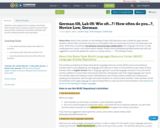
First, students will view a slide with works from German artists. They are going to describe the art with old and new adjectives. There is a clue about art in the warm-up word slide, Deutsche Adjektive. (it is written in the colors of the rainbow and then the three primary colors). Then students put these new and old adjectives to use as they digitally search museums in Berlin, hunting for art that depicts certain adjectives. Finally, in the end students share about other types of German art they enjoy - music, architecture, design, etc.

In this lesson, students will learn what the word “Hispanic” means and what some elements of culture are. Pairs/groups of students will read about a Hispanic country and create a one-pager showing cultural elements of that country.
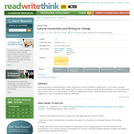
A little understanding can go a long way. After learning about difficulties that Palestinian youths face, students will write a letter to an official discussing these issues.

Dancer Lakshmi Sriraman talks about the bharatanatyam, a classical dance from India in this video from the Dance Arts Toolkit series.
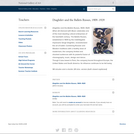
This video "Diaghilev and the Ballets Russes, 1909Ä1929: When Art Danced with Music" celebrates one of the most dazzling cultural enterprises of the twentieth century. The Ballets Russes, established in 1909 by the indefatigable impresario Serge Diaghilev, revolutionized the art of ballet. Combining Russian and Western traditions with a healthy dose of modernism, the company thrilled and shocked audiences with its powerful fusion of choreography, music, design and dance. Though it was based in Paris, the company toured throughout Europe, the United States and South America. Its influence continues to be felt today. A 28-minute video is available to watch online. A 58-minute version is available to borrow.
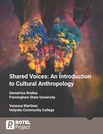
Shared Voices is a student-centered cultural anthropology mini textbook built with an equity lens. We are excited to share this with you all. This book attempts to address the lack of current, reliable, and relevant resources for introductory anthropology courses that center equity and anti-racism.
We set out to create a culturally responsive and inclusive textbook with an anti-racist and global citizenry perspective. We center marginalized voices, stories, and community. This text is a starting point for any introductory anthropology course recognizing that cultural change is constant and the familiar is cousin to the weird and unusual. A work in progress, this text aims to provide students an opportunity to build content as they explore the topics within.

The topic for Fall 2006 is short film and radio plays. This course investigates current trends and topics in German literary, theater, film, television, radio, and other media arts productions. Students analyze media texts in the context of their production, reception, and distribution as well as the public debates initiated by these works. The topic for Fall 2006 is German Short Film, a popular format that represents most recent trends in film production, and German Radio Art, a striving genre that includes experimental radio plays, sound art, and audio installations. Special attention will be given to the representation of German minorities, contrasted by their own artistic expressions reflecting changes in identity and a new political voice. Students have the opportunity to discuss course topics with a writer, filmmaker, and/or media artist from Germany. The course is taught in German.

Take a virtual tour of the prehistoric caves at Lascaux, France. The discovery of Lascaux in 1940 opened a new page in the knowledge of prehistoric art and our origins. Monumental work, the cave continues to feed the imagination and move the new generations of the world. This website is intended to help understand the secrets of the artists who painted and engraved bestiary at Lascaux 19,000 years ago, and to present the current trends in scientific research on the painted caves.
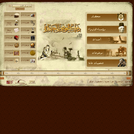
This Arabic-only website is an effort to record and preserve information on the culture and history of modern Egypt from the reign of Muhammad 'Ali starting in 1805 to the end of Sadat's presidency in 1981. Materials on this site include pictures of coins from this era, maps, stamps, medals, books, documents, photos, recordings, information on movies, speeches, newspaper articles, magazine covers, and more.
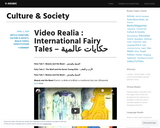
This subpage of the Virtual Arabic blog offers realia material (realia is real life material meant to be used to aid language study in classroom situations) regarding culture and social material. The material listed on this subpage include social movement campaigns, aspects of everyday Arabic culture, and political cartoons. Material is available in picture, video, and text format.

This course introduces the history of Islamic cultures through their most vibrant material signs: the religious architecture that spans fourteen centuries and three continents — Asia, Africa, and Europe. The course presents Islamic architecture both as a historical tradition and as a cultural catalyst that influenced and was influenced by the civilizations with which it came in contact.
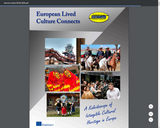
The comprehensive e-book was developed from the European project entitled "European Lived Culture Connects" (Project Acronym: EliCCon project), which was co-financed by the EU funding programme Erasmus Plus. The project was carried out from 2018 to 2020. Project teams from Germany, Spain, the Czech Republic, the United Kingdom and Switzerland documented interesting examples of intangible cultural heritage from their country and especially their region. The focus was on photographic documentation. On more than 600 pages impressive examples of customs, traditional knowledge, old crafts, rites, festivals and much more can be found.

Joe Allred, leader of the Lexington, KY.-based Capoeira Narahari, discusses the basics of Capoeira and its origins in Brazil in this video from the Dance Arts Toolkit series.
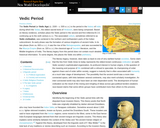
This resource comprehensively introduces the Vedic Civilisation. Vedic is derived from the word ‘Veda’ which are the literature resources found during the Vedic time. further, it elaborates about the life-dimensions and the culture that existed during the Vedic period.
The life as it revolved around and incorporated the political system, religion, social life and amusements is remarkably explained in this article.
The articles concludes by providing the information of the legacy as it continues even today, although the vedas has been sourced from the history.

Jennifer Rose, a dancer, musician, and folk historian from Berea, Ky., talks about the background of the Tarantella, in this video from the Dance Arts Toolkit series. The Tarantella is a folk dance that originated in Italy.

An organization’s culture includes the assumptions, symbols, organizational beliefs, routines, and shared language that influence how people behave and make sense of their experiences within the organization. The culture of an organization is linked to all facets of the people, processes, and technology that make up a functioning organization. Training and development is an important tool and helps to define organizational culture. The organizational knowledge base serves as a foundational resource for the entire training strategy as it allows the organization to be adaptable, responsive, and in alignment with the core values and mission. Knowledge creation enables the organization to refine and develop new content as well as find better, more effective ways to do tasks. Knowledge sharing refers to the social interactions between key stakeholders that allow for the transactional and transformation exchange of organizational experiences, implicit and explicit knowledge, thoughts, and suggestions. Knowledge storage enhances organizational memory and promotes access to and use of information for decision making. Learning and finding appropriate ways to use knowledge within our organizational roles for different activities and problem-solving situations is one of the primary goals of training and development areas. How we choose to train and develop team members will be heavily influenced by the organizational culture. Consider the following example.